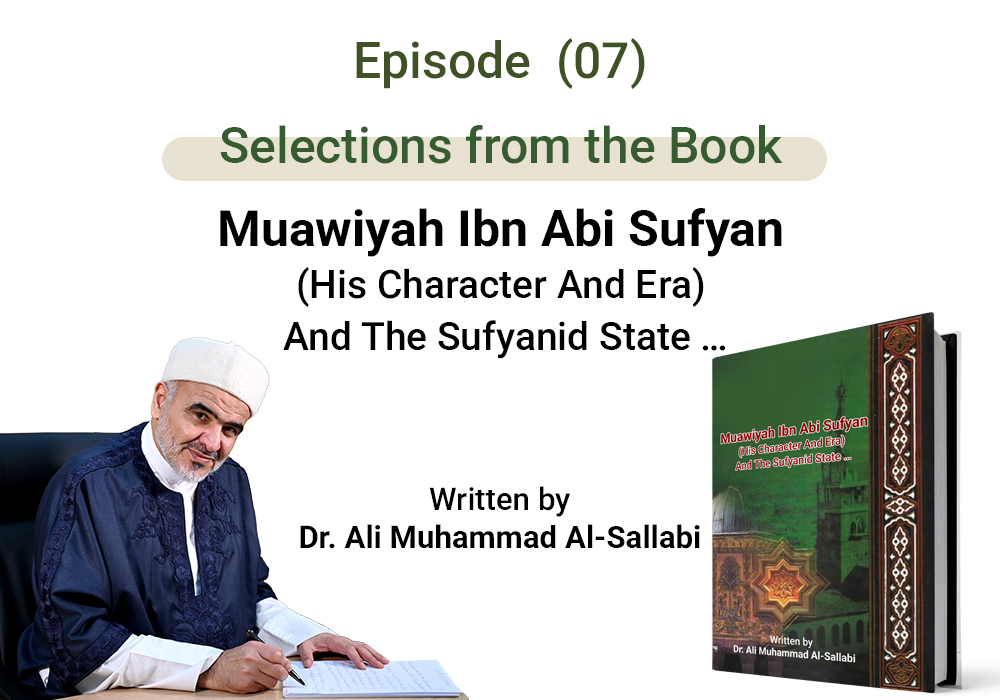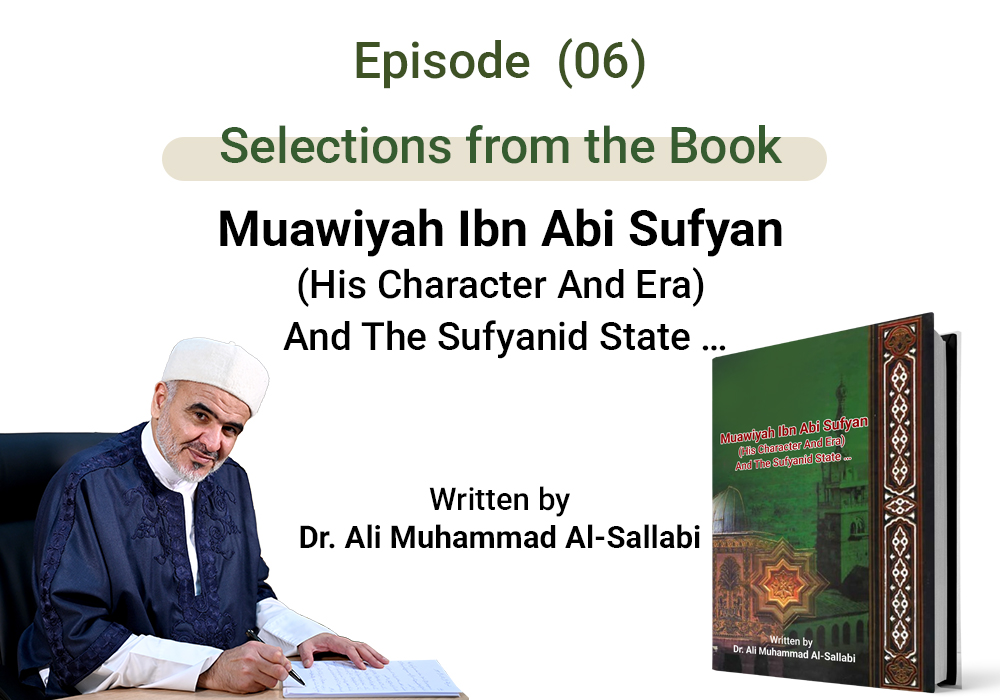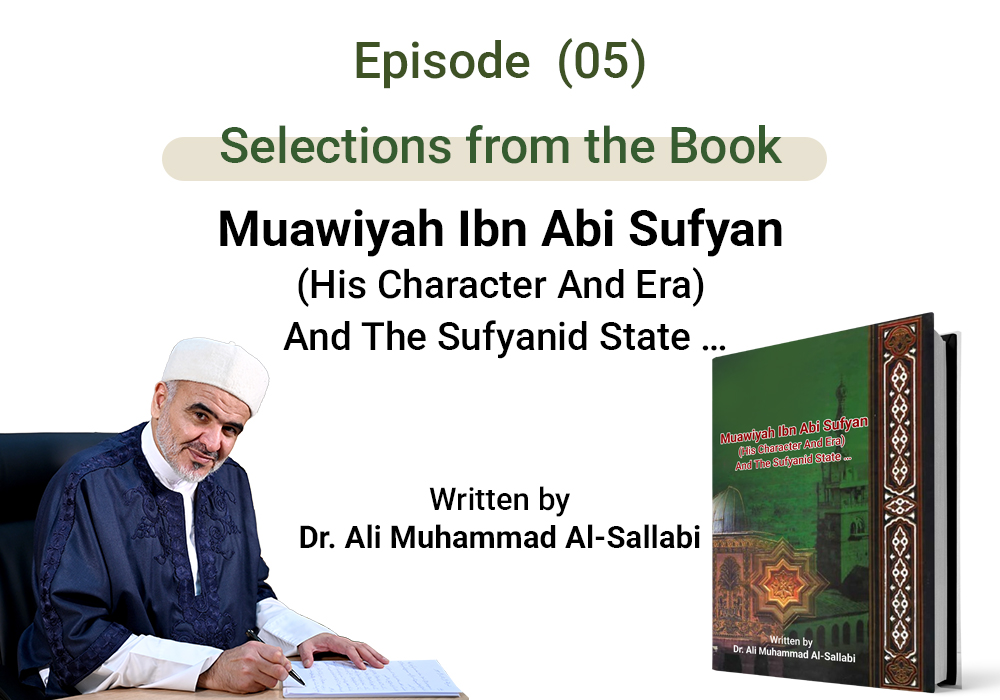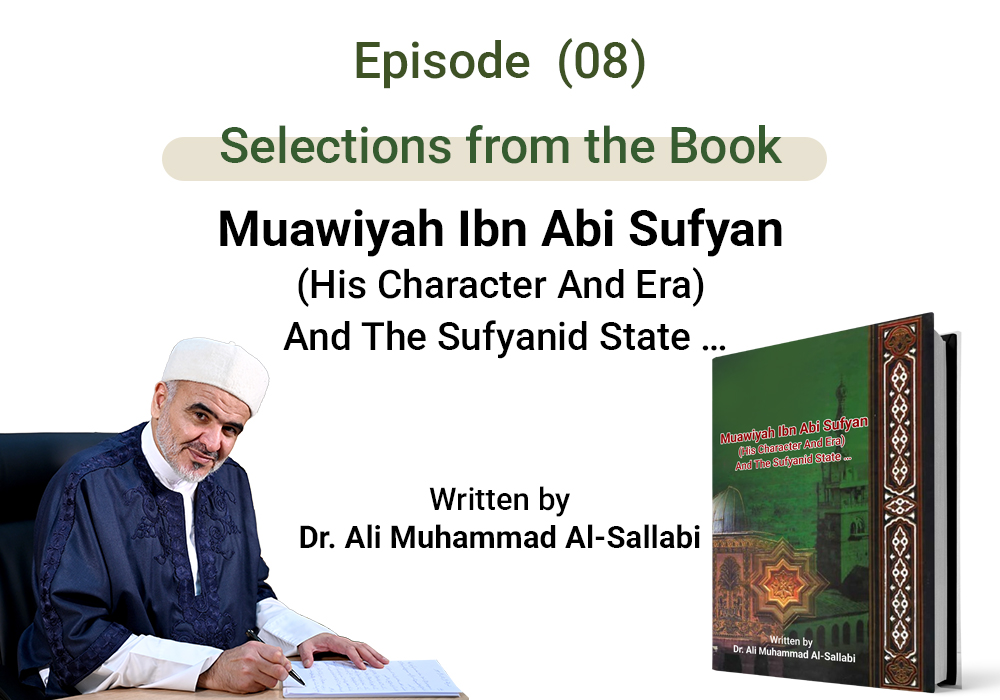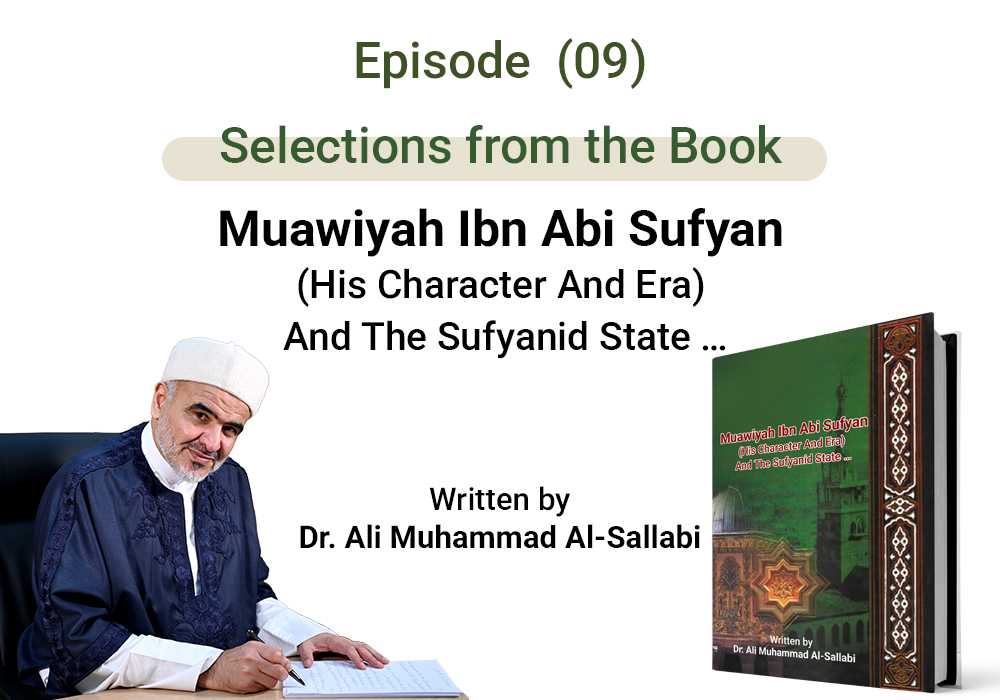Muawiyah In A Grand Procession And Umar’s Disapproval Of It
Selections from the Book Muawiyah Ibn Abi Sufyan (His Character And Era) And The Sufyanid State …
Written by Dr. Ali Muhammad al-Sallabi...
Episode (07)
Umar, may Allah be pleased with him—who was well-versed in the nature of men—recognized more than others the qualities that made Muawiyah fit for leadership. When Umar visited al-Sham, Muawiyah came to meet him in a grand procession, which ‘Umar disapproved of. He said: “Are you the one with this grand procession?” Muawiyah replied: “Yes”. ‘Umar said: “Along with what I’ve heard about people with needs standing long at your door?” He replied: “What you heard is true”. Umar said: “Why do you do this? I have thought of ordering you to walk barefoot back to the land of Hijaz”. Muawiyah responded: “O Commander of the Faithful, we are in a land where the enemy's spies are many. It is necessary to display the dignity of authority, which brings dignity to Islam and its people and strikes fear into the enemy. If you command me, I will obey; if you forbid me, I will stop.”
Umar replied: “You leave me stuck as if between the molars of a tooth. If what you say is true, it is the insight of a wise man. If it is false, it is the deception of a skillful rhetorician”. Muawiyah said: “Then command me, O Commander of the Faithful”. ‘Umar said: “I neither command you nor forbid you”. A man said: “O Commander of the Faithful, how well the young man responded to what you challenged him with!” Umar said: “For the goodness of his responses and reasoning, we have burdened him with what we have burdened him”. In another narration, the man who said to ‘Umar, “How well the young man responded to what you presented to him,” was ‘Abd al-Rahman ibn ‘Awf, who was with ‘Umar when Muawiyah met them with this grand procession.
This response from Muawiyah, may Allah be pleased with him, indicates a high level of political acumen, a conscious awareness of the conditions of nations, and a full understanding of governing subjects and maintaining the security of the state he ruled. Because of this, ‘Umar was content with his approach, even though it differed from his own policy of concern for the affairs of his people and addressing their complaints. Perhaps ‘Umar’s statement—“For that reason, we have burdened him with what we have burdened him”—indicates his approval of Muawiyah’s policy.
Umar, may Allah be pleased with him, would regularly mentor, advise, and admonish Muawiyah—and at times, he would be harsh and stern with him. Aslam, the freedman of Umar, said: “Muawiyah came to us, and he was the fairest or among the fairest and most handsome of people. He went on Hajj with Umar, and Umar would look at him in amazement, then place his finger on his back and lift it off skin as smooth as a sandal strap. He would say: ‘Well, well! Then we are indeed the best of people if we are given both the good of this world and the Hereafter.’
Muawiyah replied: ‘O Commander of the Faithful, let me explain. We live in a land of bathhouses and abundance.’ ‘Umar responded: ‘And let me tell you—your indulgence in the finest foods, your lounging until the sun strikes your back while people with needs wait behind your door!’
When we reached Dhu Tuwa, Muawiyah took out a fine garment and wore it, and ‘Umar noticed a fragrance from it, like the scent of perfume. ‘Umar said: ‘One of you sets out for Hajj looking disheveled, then when he arrives at the most sacred of Allah’s cities, he pulls out garments as if they were soaked in perfume and wears them!’
Muawiyah said: ‘I only wore them to enter upon my kin and people. By Allah, I’ve heard your criticism both here and in al-Sham. And Allah knows, I have known modesty in it.’ Then Muawiyah removed those garments and put back on the ones in which he had entered ihram.”
The Umayyad Amr ibn Yahya ibn Sa‘id reported from his grandfather that Muawiyah once entered upon ‘Umar wearing a green robe. The companions looked at it, and when ‘Umar saw this, he jumped up with his whip and began striking Muawiyah. Muawiyah said: “O Commander of the Faithful! By Allah, have mercy on me!” ‘Umar then returned to his seat. The people asked: “Why did you strike him, O Commander of the Faithful, when there is no one like him among your people?” Umar replied: “By Allah, I have seen nothing but good from him and heard nothing but good. But I saw”—and he gestured with his hand—“something I wanted to bring down.”
And whenever Umar ibn al-Khattab saw Muawiyah, he would say: “This is the Chosroes of the Arabs.”
Muawiyah, may Allah be pleased with him, in his governorship over al-Sham, maintained the pomp and style of kingship in terms of equipment and appearance. He believed that, being stationed on a frontier facing the enemy, it was necessary to rival them in the adornments of war and jihad and in the display of kingship and authority. He held the view that while kingship was criticized by the Shari‘ah, it was not condemned for achieving dominance through truth, compelling the people toward religion, or attending to public interests—but rather for domination through falsehood and manipulating people in pursuit of desires and whims.
If a ruler were sincere in his dominance over people for the sake of Allah, compelling them to worship Allah and to wage jihad against His enemies, then such kingship would not be blameworthy. Allah the Exalted said: {He said, "My Lord, forgive me and grant me a kingdom such as will not belong to anyone after me. Indeed, You are the Bestower."} [Sad: 35]—for he (Prophet Solomon) knew himself to be free from falsehood in both prophethood and kingship.
Thus, the pomp of Muawiyah’s kingship had lawful purposes and intentions, which is why ‘Umar, may Allah be pleased with him, remained silent. On one occasion, when Muawiyah was mentioned in front of Umar, he said: “Leave the young man of Quraysh and the son of its leader. He is one who smiles in anger, and cannot be reached except through satisfaction. He takes from above his head only what comes from beneath his feet.”
And no matter what exaggeration may exist in this or similar reports, Umar’s trust in Muawiyah remained above suspicion or doubt. Muawiyah had proven to Umar his deep understanding of political necessities, changing environments and societies, and how all of that influenced the political development of governance tools.
In any case, Muawiyah’s stature grew greatly in the eyes of Umar, may Allah be pleased with him. He appointed him over one of the most important provinces of his state, expanded his authority, and never dismissed him—despite frequently dismissing many of his other governors and officials. He admired Muawiyah’s intelligence and administrative skill and did not hide this admiration. He once said to his companions: “You speak of Kisra and Caesar and their cleverness, while you have Muawiyah among you?!”
- Ali Muhammad al-Sallabi, Muawiyah Ibn Abi Sufyan (His Character And Era) And The Sufyanid State, pp. 97-102.
- The Beginning and the End (11/415).
- The Umayyad State, Hamdi Shaheen, p. 154.
- Al-Tabari’s History (5/330).
- Ibn Khaldun as an Islamic figure, Imad al-Din Khalil, p. 78.
- The Umayyads between East and West, by Muhammad Al-Wakeel (1/30).
For further information and review of the sources for the article, see:
The Book of “Muawiyah Ibn Abi Sufyan (His Character And Era) And The Sufyanid State” on the official website of Sheikh Dr. Ali Muhammad al-Sallabi:


